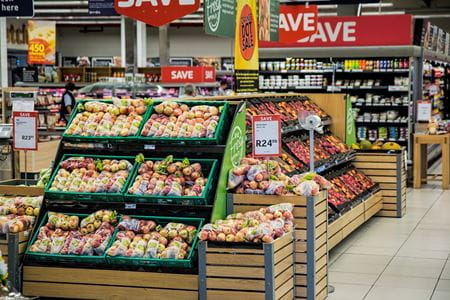An apple a day may keep more than the doctor away: Researchers from Indiana University School of Medicine have found that a diet rich in fruits and vegetables may reduce the risk of COVID-19 infections and lead to faster recovery in those who contract the virus.
A global survey of COVID-19 patients showed strong links between days to recovery and the types of foods and beverages the patient ate and drank. Specifically, results showed that those who consumed more vegetables, herbs and spices, and fermented foods and beverages, recovered from COVID-19 more quickly.
Researchers say it's the anti-inflammatory effects of the phytochemicals found in plant-like foods that reduce the risk of infection and lead to quicker recovery times. The study was published in the journal Frontiers in Nutrition.
Previous studies have shown that phytochemicals – chemical compounds produced by plants – bind to the spike proteins of SARS-CoV-2, the virus that causes COVID-19, and helps to prevent its replication. This suggests that consuming foods rich in phytochemicals – like, green vegetables such as broccoli or cabbage, citrus fruits such as lemon and orange, and red fruits such as strawberries and blueberries, as well as coffee and black tea – could offer protection from COVID-19.
Sachiko Koyama, PhD, an Assistant Research Professor of Medicine in the Division of Nephrology at IU School of Medicine was among the leadership team of the project which had almost 30 members. The project was conducted in partnership with the Global Consortium for Chemosensory Research (GCCR), which was founded amid the pandemic to study chemosensory issues that were reported among patients.
A variety of factors influence COVID-19 infection rates, the severity of symptoms, and the recovery process, including genetics, age, and pre-existing conditions. But there also appears to be geographical differences in the number of cases around the world.
Researchers noted that government responses and strategies surely impacted infection rates. But they hypothesized that the food consumed in these different countries, regions, and cultures could also play a role.
To learn more, Koyama and her team developed an online survey that asked participants about whether they contracted COVID-19, their symptoms, the time it took them to recover, and how frequently they consumed various foods and beverages.
The survey was originally developed in English, but thanks to teams of researchers around the globe, it was translated into nine other languages, Chinese, Indian, Italian, Japanese, Persian, Polish, Russian, Spanish, and Turkish. This allowed for world-wide participation.
Six countries – India, Iran, Italy, Japan, Russia and Spain – had more than 100 residents participate, with high correspondence between the location of the participants and the language of the survey.
Results of the survey showed that participants who did not contract COVID-19 consumed vegetables, herbs and spices, and fermented foods and beverages significantly more than the participants who contracted COVID-19. In India and Japan, people who contracted COVID-19 experienced a significantly shorter recovery time, and a greater daily intake of vegetables was associated with the faster recovery.
Visit the Frontiers website to read more about the study and to view of full list of the authors involved.
Researchers from IU in addition to Koyama included Keiland Cooper, a graduate of the Department of Psychological and Brain Sciences and the Department of Cognitive Sciences at IU Bloomington, who is currently a graduate student at the University of California, Irvine.
Funding for the research work came from a variety of sources, including the National Institute of Alcohol Abuse; the National Institute of Nursing Research; the Rockefeller University Heilbrunn Nurse Scholar Award; the Office of Workforce Diversity; and the National Institutes of Health Distinguished Scholar Program to Dr. Paule Joseph, one of the leader team members of the project.
